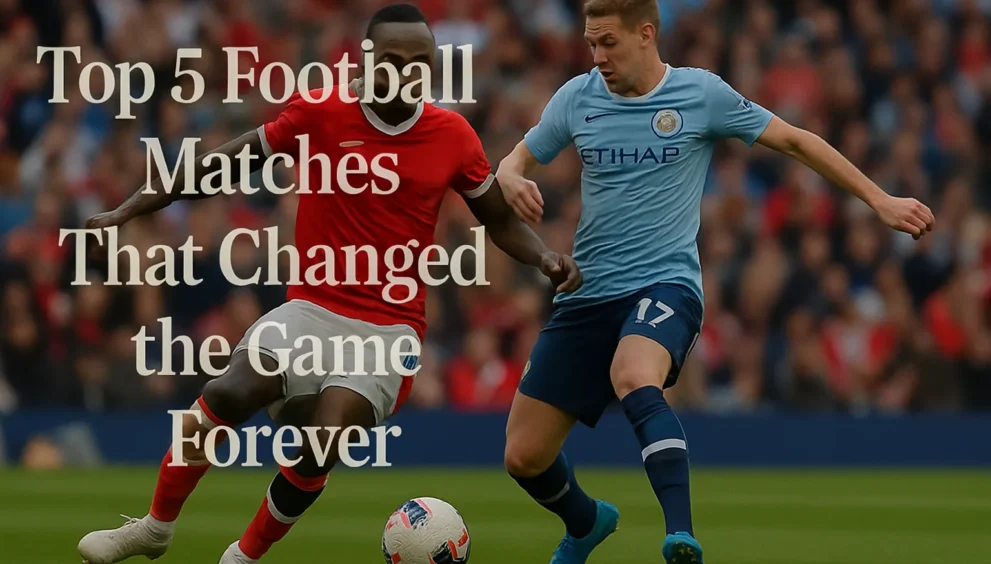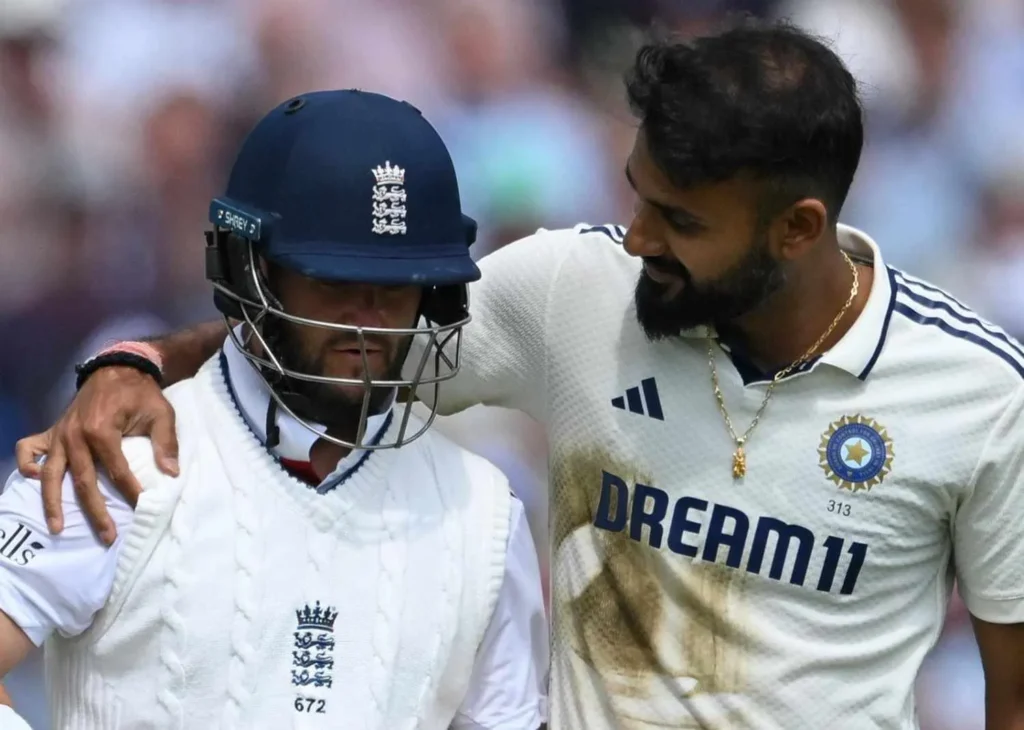How to Learn Web Development in 2026 :
Feb 23, 2026Top 5 Football Matches That Changed the Game Forever

Football, known as the beautiful game, is much more than a sport. It’s a cultural phenomenon that transcends borders, uniting millions of fans with passion, drama, and unforgettable moments. Over the decades, there have been matches that not only delivered entertainment but also transformed the sport itself—shaping tactics, inspiring rule changes, and redefining footballing history.
In this article, we revisit the Top 5 Football Matches that left a permanent mark on the game, both on and off the pitch.
1. 1953 – Hungary 6–3 England (“The Match of the Century”)
Date: 25 November 1953
Location: Wembley Stadium, London
Before 1953, England was considered invincible at home, unbeaten against non-British opposition on English soil. But then came Hungary—the “Mighty Magyars”—who rewrote football’s tactical playbook.
Why it changed the game:
- Hungary introduced the revolutionary 4–2–4 formation and fluid movement, with Ferenc Puskás and Nándor Hidegkuti wreaking havoc on England’s rigid WM system.
- Their total football-style positional interchange confused defenders and set the foundation for future tactical evolutions.
Legacy:
The match shattered England’s belief in traditional football dominance and inspired coaches worldwide to innovate tactically. In many ways, it paved the road for the Dutch “Total Football” era of the 1970s.
2. 1966 FIFA World Cup Final – England 4–2 West Germany (AET)
Date: 30 July 1966
Location: Wembley Stadium, London
England’s only World Cup victory remains one of the most debated matches in football history, thanks to Geoff Hurst’s controversial “did it cross the line?” goal in extra time.
Why it changed the game:
- The disputed goal sparked decades of debate and indirectly contributed to the eventual introduction of goal-line technology.
- Geoff Hurst became the first (and still the only) player to score a hat-trick in a World Cup final.
Legacy:
It was a lesson in how pivotal officiating decisions can be. Without that moment, technology in football might have been delayed even further.
3. 1986 FIFA World Cup – Argentina 2–1 England (“The Hand of God” & “Goal of the Century”)
Date: 22 June 1986
Location: Estadio Azteca, Mexico City
This quarter-final between Argentina and England was dominated by one man—Diego Maradona. Within just four minutes, he delivered both the most infamous and the most brilliant goals in football history.
Why it changed the game:
- The “Hand of God” goal exposed the limitations of refereeing without video assistance.
- Just moments later, Maradona dribbled past five England players to score the “Goal of the Century,” cementing his status as a football deity.
Legacy:
This match intensified discussions around fair play, refereeing accuracy, and eventually influenced FIFA’s move toward VAR technology decades later.
4. 1999 UEFA Champions League Final – Manchester United 2–1 Bayern Munich
Date: 26 May 1999
Location: Camp Nou, Barcelona
With 90 minutes gone, Bayern Munich were already preparing to lift the trophy. But in one of football’s most dramatic comebacks, Manchester United scored twice in stoppage time to snatch victory.
Why it changed the game:
- Showed the mental resilience and never-give-up attitude that became part of Sir Alex Ferguson’s legendary philosophy.
- Proved the tactical and psychological importance of substitutions, with Teddy Sheringham and Ole Gunnar Solskjær both scoring off the bench.
Legacy:
It became the ultimate example of why football is “played until the final whistle,” inspiring countless comebacks in football lore.
5. 2014 FIFA World Cup Semi-Final – Brazil 1–7 Germany
Date: 8 July 2014
Location: Estádio Mineirão, Belo Horizonte
A result so shocking it became known simply as “The 7–1.” Brazil, the host nation and five-time champions, were utterly dismantled by Germany in a performance of clinical brilliance.
Why it changed the game:
- Exposed flaws in Brazil’s tactical approach and overreliance on star players like Neymar (who was injured).
- Showed the importance of structure, discipline, and team chemistry over individual brilliance.
Legacy:
Brazil underwent a deep tactical reassessment, while Germany’s victory highlighted the long-term benefits of youth development programs.
Common Themes That Changed Football
Looking at these five matches, several patterns emerge:
- Tactical Evolution: From Hungary’s 4–2–4 to Germany’s disciplined pressing, each match influenced how football is played.
- Technology in Football: Controversial decisions—from Hurst’s goal in 1966 to Maradona’s “Hand of God”—pushed the sport toward VAR and goal-line tech.
- Psychological Lessons: Matches like the 1999 UCL final proved the importance of belief and mentality in sport.
- Global Inspiration: These matches inspired fans, players, and coaches across generations, influencing football at every level.
Conclusion
Football is ever-evolving, shaped by moments of genius, controversy, heartbreak, and joy. These five matches didn’t just entertain—they transformed the way the game is played, viewed, and even governed. Whether it’s tactical innovations, technology adoption, or unforgettable drama, their influence will be felt for generations to come.












































